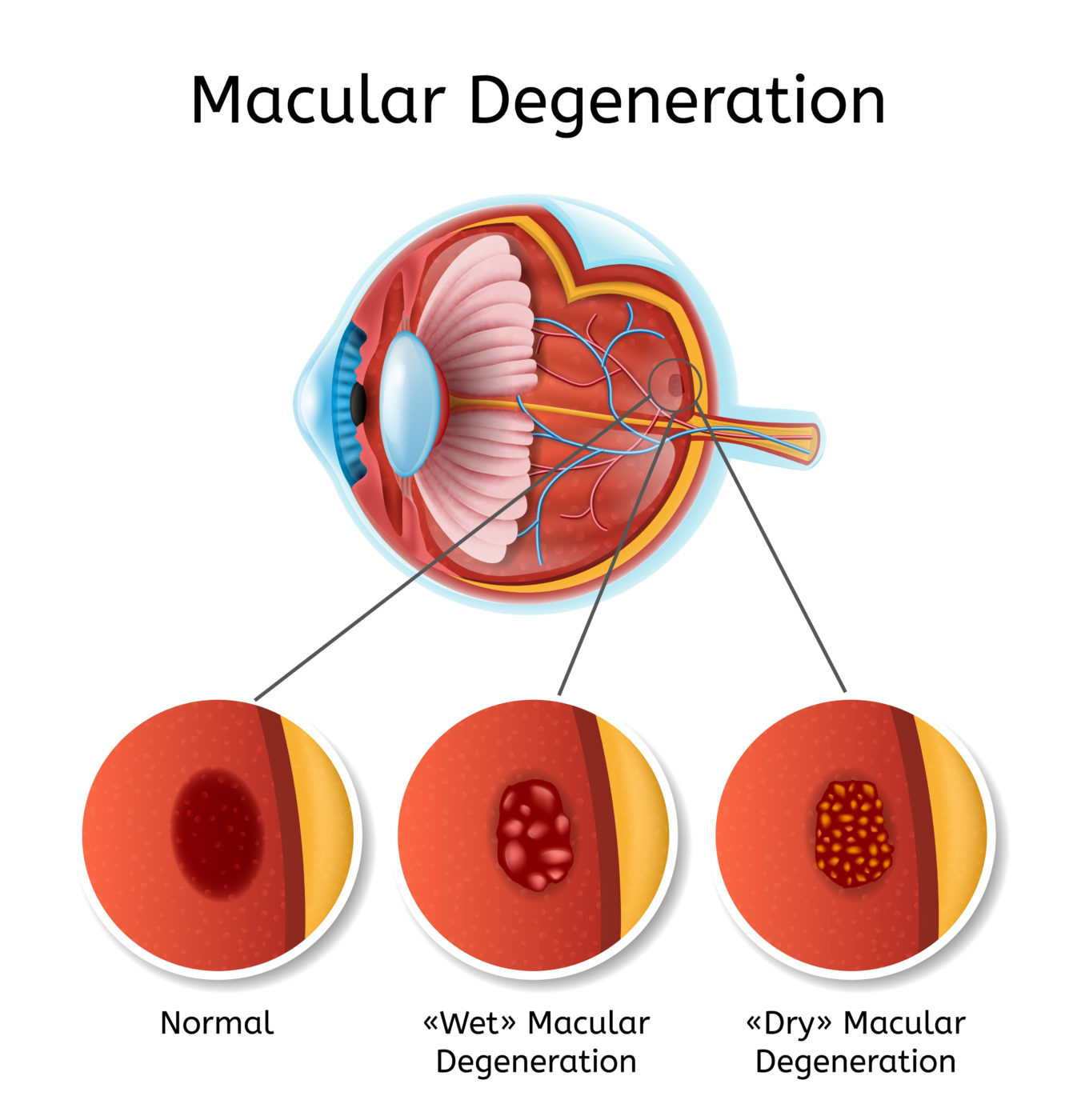The Fort Lauderdale Eye Institute is conducting a clinical trial on a new form of treatment for Wet Macular Degeneration
About the Fort Lauderdale Eye Institute
As a leading ophthalmic practice that specializes in diagnosing, treating, and correcting eye and retinal diseases, the Fort Lauderdale Eye Institute has many years of experience in successfully diagnosing and treating thousands of patients with macular degeneration.
What is Macular Degeneration?
Affecting nearly 2 million Americans, macular degeneration (AMD) or degeneration of the macula, is currently an incurable eye disease, leading to age-related vision loss. However, there are multiple treatment options that can help you improve and/or stabilize your vision and are contingent upon the progression of your disease.
The macula is in the center of the retina and is a small spot where vision is keenest. It lines the interior of the back of the eye and is light sensitive. The macula functions by processing the light that enters our eyes into millions of cells that change that light into nerve signals which relays to the brain what we are seeing.
When the macula begins to deteriorate or (degenerate), your central vision is affected. Central vision enables you to perform activities that require sharp, fine, and straight ahead vision and affects activities such as driving and reading.
Different Forms of Age-Related Macular Degeneration (ARMD)
There are two forms of age-related macular degeneration with dry ARMD being the most common. In the beginning stages of dry AMD, small yellow spots, called drusen, accumulate from the debris of deteriorating tissue around the macula. This accumulation will eventually create a dark spot in the center of the image the eye sees.
The other form of AMD, Wet AMD, is more serious and potentially damaging. Wet Age-Related Macular Degeneration accounts for almost all severe vision loss caused by either type of AMD. With Wet ARMD, new, abnormal blood vessels grow beneath the retina and leak fluid and blood, causing permanent damage to retinal cells. Because of the severity and progression of Wet AMD, finding a cure is extremely important.
Meet Our South Florida Ophthalmologists Heading the Clinical Trial
Natalia Villate, MD
Born in Columbus, Ohio and raised in Bogota, Columbia, Dr. Villate is a board certified ophthalmologist that specializes in the diagnosis, treatment, and care of patients with medical and surgical disease of the retina. With a special interest in macular degeneration, Dr Villate completed a Medical Retina Fellowship at the prestigious Bascom Palmer Eye Institute at the University of Miami Miller School of Medicine. There she was involved in innovative research on macular degeneration, macular imaging techniques and image analysis.
Dr. Villate has also participated in clinical trials specifically related to the treatment of macular degeneration.
Stuart Burgess, MD
Dr. Burgess joined the Fort Lauderdale Eye Institute in 1999 as the group’s retinal subspecialist and went on to form FLEI’s affiliate, Fort Lauderdale Retina Institute, in 2006.
Dr. Burgess is board-certified by the American Board of Ophthalmology and is a fellow of the American Academy of Ophthalmology and American College of Surgeons. Dr. Burgess specializes in the medical and surgical treatment of retinal diseases including the management of macular degeneration, and other serious eye-related diseases. He was one the first retinal specialists to offer advanced treatments for macular degeneration, including anti–VEG F agents, *Lucentis® and Avastin. He is also involved in clinical studies of the latest treatments of retinal diseases.
Tirso Mark Lara, MD
Dr. Lara is Board certified by the American Board of Ophthalmology. He specializes in the diagnosis, treatment, and care of patients with retinal disorders, including a special interest in macular degeneration.
Dr. Lara has earned many awards which include a National Research Service Award from the National Institutes of Health. Dr. Lara earned this award after completing a surgical fellowship at Harvard Medical School and the Brigham and Women’s Hospital in Boston, Massachusetts.
Born in Washington, D.C. and raised in Mexico, Dr. Lara graduated from LaSalle University School of Medicine. He also specializes in the treatment of diabetic retinopathy, uveitis, and severe ocular trauma, using state-of-the-art surgical and laser techniques for various problems such as retinal detachments, macular holes and eye injuries.







